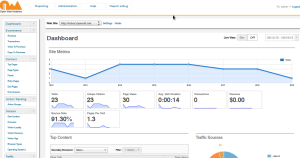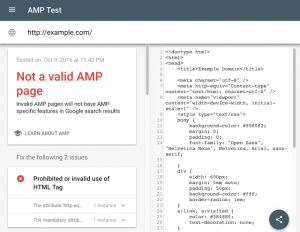
2017 is the year of speed. Because a massively growing number of people are shopping and looking for information online, these consumers are expecting sites to provide them the best online experiences. One of the things that people expect is a lightning fast return of results. In other words, fast loading web pages.
This article will demonstrate the benefits of optimizing your website for speed and how choosing a website builder can be the best solution to achieve better page speed.
Why Having a Fast-Loading Website Matters
It comes as no surprise that consumers want a speedy service when visiting a website. This means faster payment processing, faster loading of product images for online stores, and faster results for travel reviews.
According to Think with Google, a page load time that ranges from 1 to 3 seconds leads to a bounce rate of 32%. When this time frame goes up to 5 seconds, the bounce rate skyrockets to 90%.
This raises the question: Why does website speed matter so much?
- Benefits for SMBs
A small to mid-sized business can achieve its core business goals if it can deliver a fast site regardless of the device that users are on – desktop, tablet, or mobile. Businesses should think holistically, to prioritize delivering an overall fast experience on multiple devices so they can cater to all audiences and immediately expand their customer base.
- SEO Advantages
Since 2010, Google has made it clear that it would consider page speed as one of its ranking signals. Google rewards sites that have a shorter loading time by giving them higher rankings. In fact, it has outlined a set of rules, PageSpeed Insights Rules, for site owners and developers to follow to better optimize their sites. So if you think that page speed doesn’t affect your SEO performance, think again.
- Conversion & Engagement
Not only does an improved page speed positively influence SEO, it also affects every metric on your site that matters. To be more specific, you enjoy higher engagement and conversions such as:
- 10% longer sessions – Web visitors spend more time on your site
- 35% lower bounce rate – Fewer people leave your site or “bounce”
- 60% more page views – Your content gets more views and this represents higher engagement
The fact that 77% of websites take more than 10 seconds to load on mobile devices gives you a competitive advantage. This situation puts you in a place where you can outperform your competition by doing a revamp on your loading speed.
Choosing the Right Website Builder to Speed up Your Website
While you can follow some best practices to improve site speed such as optimizing your images, minimizing HTTP requests, and reducing the number of plugins on your site, using a website builder that’s optimized for speed ensures that you get the best performance.
For this matter, we have selected 4 website builders which we can test to see how well they optimize every site built on their platform for page speed: Duda, WordPress, Weebly, and Wix.
In an effort to enhance websites for page speed, Duda started a project that would make every Duda site obtain an excellent Google PageSpeed score. Duda’s main strategy was to adhere to Google’s PageSpeed Rules and Recommendations.
From using the most recommended lossy image compression (while preserving image quality) to optimizing JavaScript and CSS use, users can expect their websites to automatically load fast – regardless of whether they leverage manual methods to increase speed or not.
We have chosen to test one of Duda’s sites http://www.imperiumcontracting.ca/home for Google PageSpeed score. After testing, we obtained a result of 90/100 for mobile speed and 98/100 for desktop speed.

Though WordPress makes a great platform for millions of communities worldwide, one downside that users often encounter is a slow loading site. The reason for this is that WordPress is highly fragmented. This means that there are several versions of WordPress that are being used today.
The page speed of websites that are hosted on the platform can differ due to varying themes and plugins. However, individual users can still leverage manual methods to increase site speed such as using a content delivery network (CDN) and reducing their amount of post revisions.
We have chosen to test one of WordPress’ sites http://www.gracenote.com/ for Google PageSpeed score. After testing, we obtained a result of 38/100 for mobile speed and 40/100 for desktop speed.

Anyone who decides to host their website on Weebly can use multiple strategies to increase page speed. Though Weebly doesn’t automatically optimize sites for speed, users can reduce the amount of content on their homepage especially if they utilize responsive themes (which can slow down sites).
We have chosen to test one of Weebly’s sites http://www.tampabaykitchen.com/ for Google PageSpeed score. After testing, we obtained a result of 45/100 for mobile speed and 53/100 for desktop speed.

Wix Help Center published an article on site loading time. It acknowledges the fact that speed has gotten much slower now across sites all over the web since the availability of animations, videos, slideshows, and high-quality images. However, these new advancements that decrease site speed should not hinder site owners from delivering the best experiences to their customers.
Wix uses some methods to improve site loading time such as resizing images while retaining quality, using a CDN, and defending sites against DDOS attacks.
We have chosen to test one of Wix’s sites http://www.piece-of-history.com/ for Google PageSpeed score. After testing, we obtained a result of 82/100 for mobile speed and 90/100 for desktop speed.

Conclusion
Page speed is an important element that affects the overall experience of users. Time is of the essence when it comes to speed. People are getting impatient and would rather click away than wait for a page to load.
As Amir Glatt, co-founder and CTO of Duda, quotes, “It’s pretty common knowledge that the amount of time it takes for a website to load can have a big impact on user conversion and engagement rates.”
Users can get hold of Google’s recommendations on managing site speed but not everyone has the technical skill set to fix what’s wrong. That is why leveraging a website builder such as Duda that complies with Google’s PageSpeed Rules and Recommendations is the most advantageous strategy to ensure success.
Digital & Social Articles on Business 2 Community(91)









